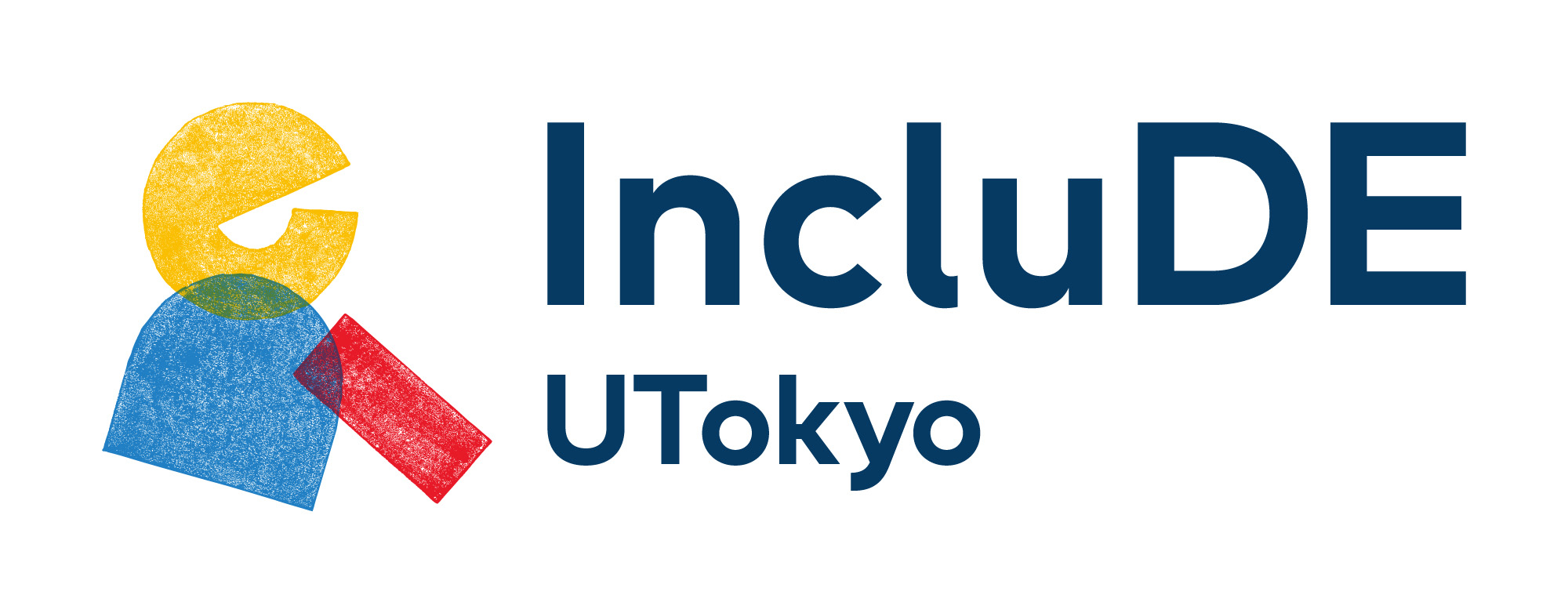FAQ
Q1: What considerations are given to students with disabilities by the National Center for University Entrance Examinations?
The Common Test for University Admissions stipulates “special examination measures” for students with disabilities.
For details, see the website of the National Center for University Entrance Examination.(Japanese)
Q2: What support and accommodations are available?
The University provides support and accommodations based on the needs and conditions of each individual with disability. For examples of support and accommodations, see Types of Support and Accommodations for Students with Disabilities and Types of Support and Accommodations for Faculty and Staff with Disabilities.
Q3: Where can I ask for support?
Individuals requesting support are invited to apply through persons in charge of barrier-free support implementation at the faculty/graduate school (department/division) to which you belong. Departments/divisions provide support in cooperation with the Office for Disability Equity
(ODE). To find out who is in charge of support implementation or details about support, feel free to contact the ODE.
For the flow of detailed support, see the Support Flow (Students) (Faculty and Staff).
Q4: Can assistive technology (AT) equipment be rented?
It is lent based on need. AT equipment currently available for rent from the ODE is listed in 、Assistive Technology (AT) Equipment Rental. For items not on the list, contact the ODE .
Q5: I am not a holder of the Identification Booklet for the Physically Handicapped, but can I still receive support?
Persons with impairment of a degree not eligible for the Identification Booklet for the Physically Handicapped may still require support. The University provides support based on the needs of each individual with disability. Feel free to contact the ODE.
Q6: I like to commute to campus in a wheelchair. Is it accessible?
Each campus has access routes. For details, see the barrier-free Access Map.
Q7: Is there any campus map for persons with visual impairment?
The “word-map” is available for use. ( Japanese )
https://ds.adm.u-tokyo.ac.jp/contact/voicemap.html
Q8: Why is the term “barrier-free accessibility services” used instead of “services for persons with disability” at the University of Tokyo?
Note: The official name in English is the Disabilities Services Office, not the Barrier-Free Services Office.
Behind the term “barrier-free accessibility services” is our recognition that barriers exist for students, faculty, and staff with disabilities. Japanese society has put up both visible and invisible barriers (walls) against those seen as “different.” The term “barrier-free accessibility services” is based on a basic awareness that the real problem is caused by such barriers – not by those seen as “different.”
In certain situations, barrier-free accessibility services may take the form of assistance, but rather than being seen as assistance to specific individuals, the upgrading of facilities and equipment, the provision of support, the improvement of support equipment, etc., should be seen as part of greater efforts for realizing a university enabling a wide variety of persons studying together under a wide number of conditions. Many people communicate and move around differently, some due to disabilities. A genuinely affluent, dynamic society consists of a wide variety of aware persons taking active part together – a goal the University of Tokyo wants to realize on campuses where wide ranges of persons come together regardless of circumstances such as disability. We use the term “barrier-free accessibility services” in keeping with this basic University philosophy.





